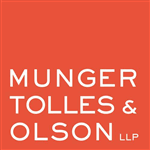Best Lawyers Near You in Nashua, New Hampshire for Bet-the-Company Litigation
Practice Area Overview
Bet-the-company cases create unique challenges. Counsel inside and outside the company must respond to several alarmed constituencies, including insiders (management, the board, employees, shareholders, investors); outsiders (customers, vendors, lenders, insurers), and regulatory authorities (to name only a few: SEC, FTC, FDA, EPA, and DOJ and their international counterparts). Counsel must conduct every aspect of the litigation with the needs and desires of these sometimes conflicting constituencies constantly in mind.
The company may face multiple investigations: congressional, criminal, regulatory, as well as special quasi-governmental commissions and internal investigations conducted by the company itself or by other parties. Counsel must deal with these investigations understanding that decisions made early on can have an enormous impact on the outcomes of investigations, subsequent litigation, and on the ultimate resolution.
Litigation may erupt in multiple jurisdictions (federal, state, international) and in multiple forms (criminal, civil, administrative, arbitral). The company may face multiple litigation adversaries, including the United States Department of Justice, State Attorneys General, regulatory counsel, and private counsel for adverse parties. Parties aligned with the company will have their own counsel, constituencies and agendas. The formal and informal coordination of all these proceedings and parties will impact the duration, cost and course of the litigation. The reputation of the company’s lead counsel – in part pre-existing and in part earned over the course of the litigation – will be critical in dealing with all these tribunals, parties, and attorneys.
Bet-the-company cases require an ability not only to navigate in these different environments, but also to see how the moving parts fit together. That in turn is the key to a more important ability: to work out, with the client, a plan – a plan that will be constantly adjusted – to get from the chaotic beginning to a satisfactory resolution.
It is best in bet-the-company cases to have a lead lawyer responsible for coordinating the varied teams of lawyers needed to handle, under a coherent plan, all these facets of the problem – teams with varying types of expertise, drawn from multiple firms, and often working in different locations. With leadership, cohesive teams can solve extraordinary problems.
Corporate Law & Commercial Litigation Legal Guide 2025
View Legal GuideLawyers who have a subscription to profiles appear first.
Would you like to claim your lawyer profile?
Contact UsOur Methodology
Recognition by Best Lawyers is based entirely on peer review. Our methodology is designed to capture, as accurately as possible, the consensus opinion of leading lawyers about the professional abilities of their colleagues within the same geographical area and legal practice area.
The Process
Best Lawyers employs a sophisticated, conscientious, rational, and transparent survey process designed to elicit meaningful and substantive evaluations of the quality of legal services. Our belief has always been that the quality of a peer review survey is directly related to the quality of the voters.



